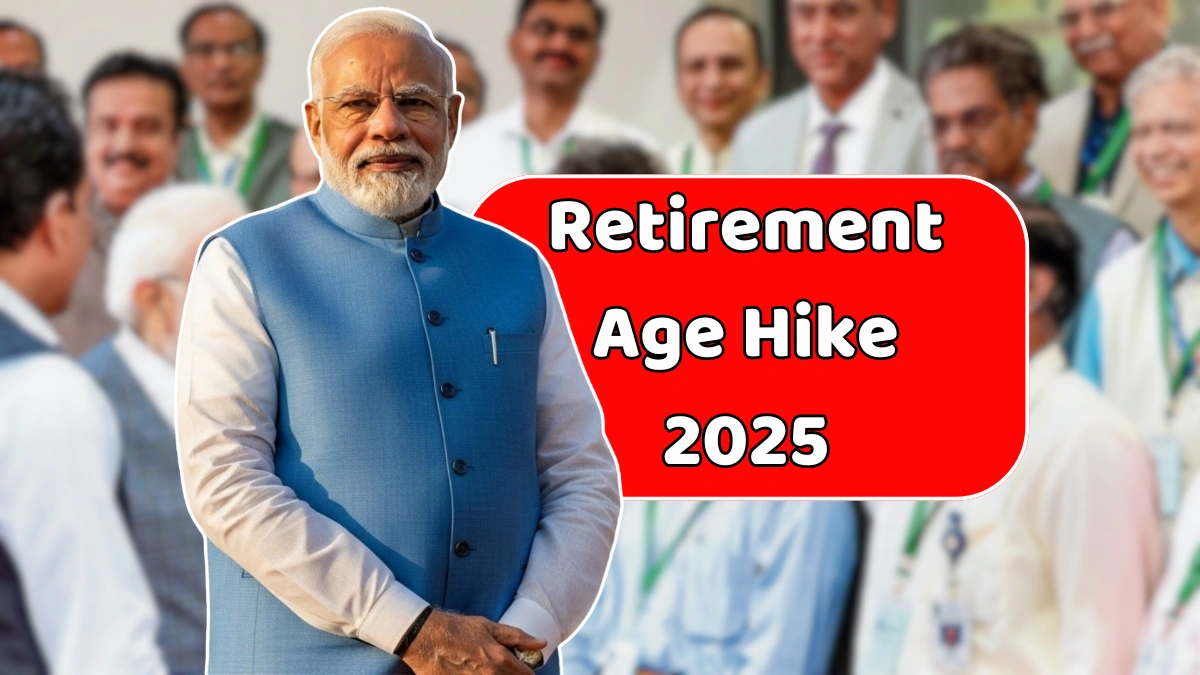Government Update 2025: The central government has officially raised the retirement age of its employees from 60 to 62 years. This policy aims to utilize the experience of senior officials, boost administrative efficiency, and align service tenures with India’s rising life expectancy and improved healthcare standards.
Why the Retirement Age Was Increased
The decision to extend the service period by two years is rooted in several practical and economic reasons. With longer life expectancy and better health among employees beyond 60, many continue to remain physically and mentally active. By retaining skilled officers longer, the government ensures a smoother transfer of knowledge to younger employees while reducing short-term pension liabilities.
This move also helps maintain continuity in departments that rely heavily on expertise and experience, particularly in technical and administrative roles.
Who Will Benefit
The revised retirement policy applies to all Central Government employees, excluding those in defense and paramilitary services, which have separate rules.
Employees working in departments like PWD, Roads, and Union Territories will follow the new retirement age structure where applicable.
Impact on Salaries and Pensions
The extension provides a clear financial advantage to employees by allowing them to earn two additional years of salary. As pensions are calculated based on the last drawn pay, this automatically increases the pension base and the total provident fund contribution.
Employees will also benefit from two extra years of contributions to retirement-linked schemes such as EPF, GPF, and NPS, leading to higher accumulated savings at the end of service.
Retirement Age Hike 2025 – Overview
| Category | Previous Rule (Before 2025) | New Rule (2025 Update) |
|---|---|---|
| Retirement Age | 60 years | 62 years |
| Applicability | Central Govt. employees | Central Govt. employees |
| Defense & Paramilitary | Separate rules | No change |
| Pension Impact | Based on 60 years’ service | Higher pension due to 62 years’ service |
| Knowledge Retention | Limited to 60 years | Extended by 2 years |
Economic and Social Impact
The retirement age hike is expected to reduce the government’s short-term pension burden while retaining a pool of experienced officers in service. For employees and their families, it ensures two more years of steady income, improved savings, and better retirement planning.
On a broader level, the decision reflects India’s demographic transition — as citizens live longer and remain productive for more years, the working population’s average age naturally rises.
Conclusion: The Retirement Age Hike 2025 represents a balanced policy that supports both economic stability and employee welfare. Extending the service age to 62 years strengthens administrative continuity, increases pension security, and makes better use of the country’s skilled manpower.
Government employees are encouraged to plan their extended service period wisely to maximize the financial and professional benefits of this reform.
Disclaimer: The information above is based on official government circulars and publicly available sources. Employees should refer to their respective departmental notifications for detailed implementation guidelines and applicability.






